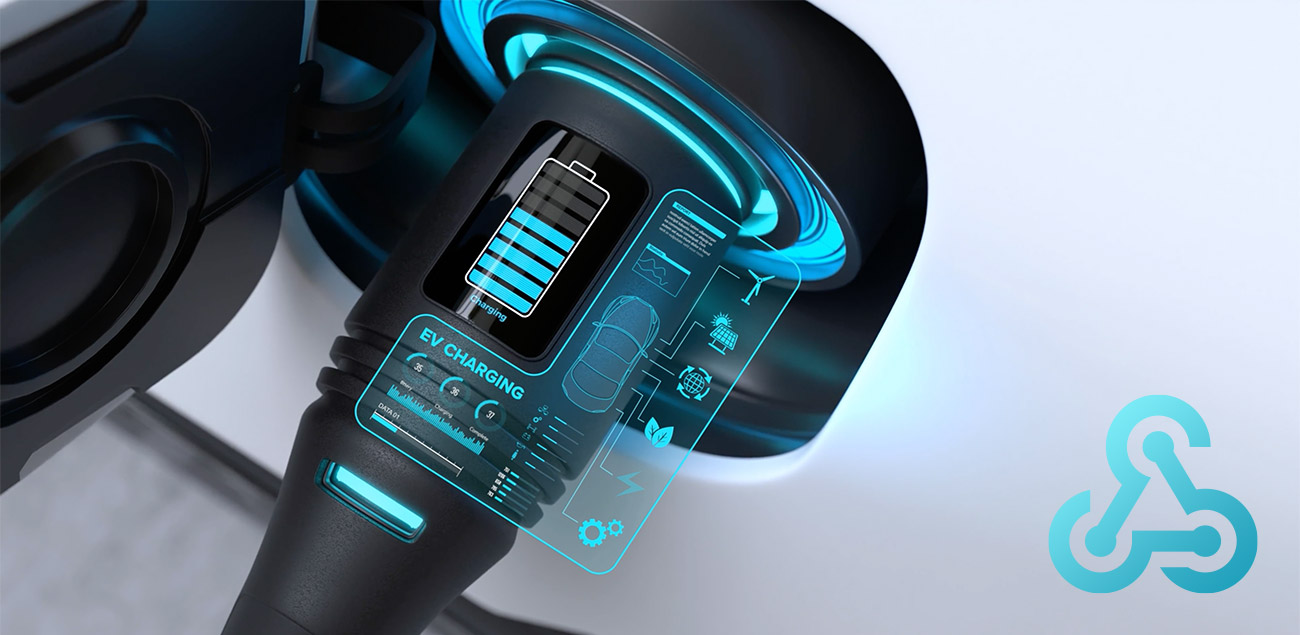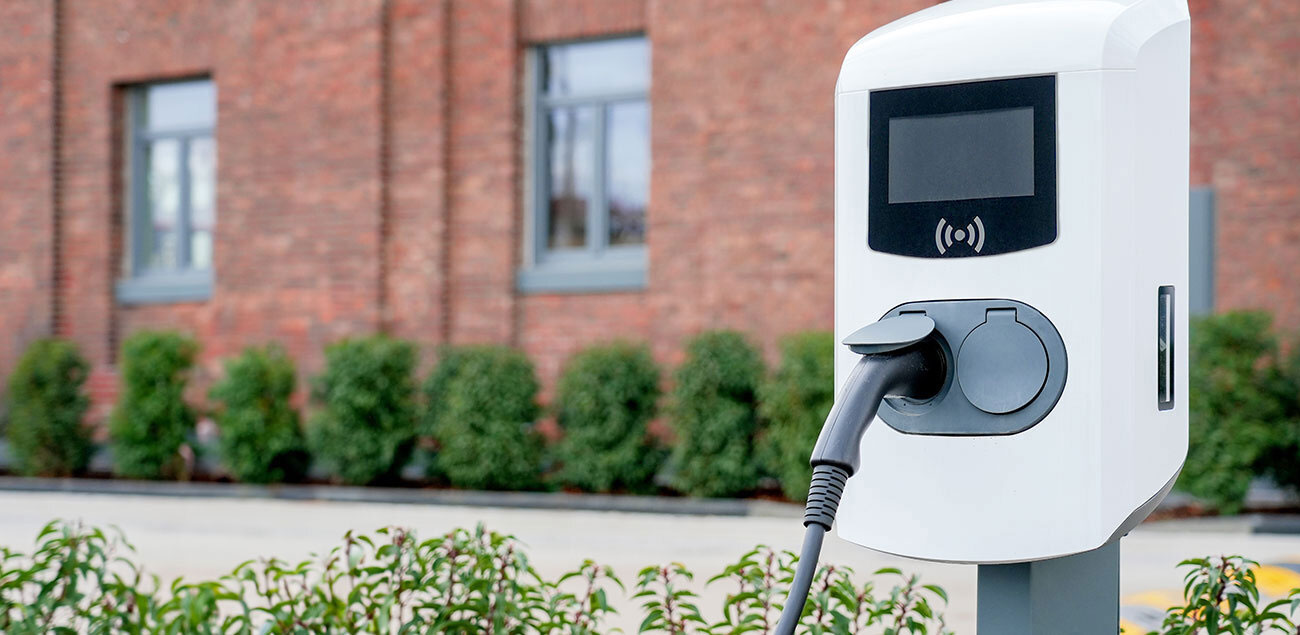We provide webhooks for our EV charging software. Webhooks enable ChargePanel’s software solutions to send real-time notifications and data to other applications or systems when specific events occur, for example data can be sent to business software, external applications, CRM and support systems.
What are webhooks and how are they used for EV charging?
Webhooks are automatic messages that are sent to one system when an event occurs in another system. They can be configured to communicate with business systems or customer support services.
If an error occurs, a webhook can immediately send an alert so the support team can quickly identify and fix the problem, minimizing disruption and optimizing operational efficiency. Webhooks can be used to send real-time information about the status of charging stations, such as when a charge starts, ends or when a charging spot becomes available. This enables quick updates and more efficient management of charging infrastructure.
Data sent to our customers systems enables them to receive essential information in real-time when a fault or event occurs at a charging station. This can include events such as the completion of a charging session, a fault in the charging process, or the need for maintenance. When these events occur, the EV charging software triggers the webhook, which then sends the relevant information to the specified destination.
Thoughts or questions about Webhooks? We are here.
Is the data sent over webhooks able to be customized?
ChargePanel can customize our webhooks functionality for all events that can occur in the system, for example, when a new charging station is added and connected and when an EV driver registers on the platform (in accordance with GDPR). By using webhooks, we can offer you a range of customized services:
- Smart Charging Management: Webhooks can enable intelligent management of charging power, which optimizes energy consumption and can reduce costs.
- Automated Information: Webhooks can provide up to date information whether it’s sending automatic invoices when a charging session ends or updating your app with the latest status of a charging station.
- Integration with Map Services: Webhooks can transmit information about which charging stations are available in near real time, making it easier for EV drivers to plan their next charge.
- Reservation Systems: Using webhooks can facilitate creating queing systems for charging stations, providing a smoother experience for EV drivers who want to secure a charging slot.
How can webhooks benefit organizations and businesses in EV charging?
Below we provide some examples of how ChargePanel’s integration of webhooks can benefit organizations and businesses across a broad variety of industries and sectors.
Energy companies can utilize webhooks to integrate EV charging software data with their systems. This allows for them to monitor and manage the electricity demand from charging stations in real time and can help optimize energy distribution and ensure efficient use of resources.
Companies with or managing electric vehicle fleets can benefit from webhooks by receiving automated updates about the status of their vehicles’ charging sessions. This can help in streamlining fleet operations, as well as enable efficient management and maintenance of fleet operations to ensure that everything runs as smoothly as possible.
Businesses offering EV charging management software can leverage webhooks for enhancing their offerings, and provide their clients with customizable applications, dashboards, and automation features, this facilitates an enhanced overall user experience and enables integration with other applications and services.
Developers and Businesses designing and developing mobile apps for EV drivers can integrate webhooks to provide personalized driver experiences, such as combining charging information within their apps, enhancing driver engagement, and improving the overall EV charging experience.
Quality, streamlined customer service is a vital component for success for EV charging businesses. Webhooks can be used to integrate with CRM systems, help desk platforms, and other customer management tools. This integration allows for seamless data exchange and the ability to trigger actions such as opening help desk tickets, ticket creation or updating customer profiles in response to and/or based on specific events.
Cities, municipalities, and smart city initiatives can utilize webhooks to enable seamless integration of EV charging infrastructure with other smart city systems, which can include, traffic management, public transportation, and environmental monitoring. Webhook integrations such as this can be a contributing factor in the development of more sustainable and interconnected urban environments.
For Retailers, restaurants, and hotels webhooks can provide added value to their customers through the integrating of EV charging notifications with loyalty programs and/or mobile apps. This can enhance customer experience, attract EV drivers to their business establishments, and contribute to brand recognition associated with sustainability and innovation.
Manufacturing companies producing electric vehicles can use webhooks to integrate their vehicles with EV charging software, allowing for communication between the vehicle’s charging system and the charging infrastructure enabling vehicle-to-charger communication. This integration can enhance the experience of EV drivers and provide valuable insights for vehicle performance and maintenance.
Insurance providers can utilize webhooks to integrate EV charging data with their risk assessment and pricing models. This can include receiving real-time information about charging patterns and electric vehicle usage, insurance companies can then offer insurance plans based on EV charging metrics, which can lead to more accurate risk evaluation and tailored pricing strategies.
Webhooks can be used in collaborations with banks, credit card companies, and businesses offering financial services through the integration of EV charging data into their customer financial management tools. Webhooks integrations can enable customers of these providers to track and manage EV charging expenses, receive alerts when charging transactions occur, and where applicable, incorporate charging costs into financial planning and budgeting.
Environmental groups and organizations with a focus towards sustainability can access real-time data on EV charging patterns and energy consumption using webhooks. This information can be useful for analyzing the environmental impacts of electric vehicle adoption, tracking carbon emissions and reductions, and support the promotion of sustainable transportation initiatives and solutions.
Public entities, including transportation departments and regulatory bodies, can use webhooks to integrate EV charging data into their urban planning and transportation management systems, which can support policy development and investments towards the promotion and adoption of electric vehicles and increase sustainability in transportation.
With webhooks these companies, can integrate EV charging data into route planning and optimization systems to enable the planning of routes that include stops for electric vehicle charging. The optimization of delivery schedules based on charging availability can facilitate gains in the reduction of operational costs associated with electric vehicle fleets.
Developers of real estate can use webhooks for integrating EV charging infrastructure into both building designs and management systems. This can position them to be able to offer EV charging services to tenants, track usage and billing data, and support initiatives aimed at the reduction of carbon emissions and the promotion of cleaner, greener building practices.
With webhooks Automotive dealerships can utilize EV charging data within their customer relationship management (CRM) systems. This can give the ability to provide personalized charging recommendations to customers, evaluate charging patterns, and offer value-added and furthermore additional services such as the installation of charging stations and maintenance services.
Organizations in this sector with a focus towards electro-mobility can gain insights into short-term and long-term EV charging behaviours and patterns. Information collected via webhooks can be analyzed to develop better technologies, products, and services aimed to improving EV charging usage, EV charging infrastructure, and for promoting and furthering the uptake of electric vehicles.
Which security & performance measures should be considered when using Webhooks in EV charging?
At ChargePanel we take the secure transfer of data seriously, here we provide some recommended measures for improving security and performance when using webhooks.
- HTTPS and SSL verification: When delivering webhooks ChargePanel will verify SSL certificates by default, for security purposes SSL verification should be enabled and your server should use a HTTPS connection.
- Protecting Endpoints: ChargePanel Webhooks supports HTTP Authentication and header token authentication. Protect Endpoints using an API key.
- Only subscribe to the necessary webhook events that you require: To reduce the workload and improve the performance of your server we recommend only subscribing to webhook events that are essential for your requirements.
- 10 Second Response: Within 10 seconds of receiving a webhook delivery, your server should respond with a 2XX response. ChargePanel terminates the connection for responses that take longer than 10 seconds. After 10 seconds the delivery will be considered unsuccessful. Setting up a queue to process webhook payloads is therefore recommended. The server can then respond as soon as it receives the webhook and process the payload in the background, this prevents blocking of additional incoming webhook deliveries.
- Allowing IP addresses from ChargePanel: To block server spoofing requests setup an IP allow list for your server; you can then add the applicable IP addresses for ChargePanel webhooks deliveries.
- Check prior to processing an event: Checking the event type and action prior to processing an event is important. Webhooks can have multiple event types, and in turn events can have multiple action types. ChargePanel adds new event types and updates existing event types with new actions over time. You can register different callback endpoints for different events, and we recommend that your application checks the event type and action of a webhook payload prior to processing.
At ChargePanel we are committed to innovating and implementing the latest technologies.
Webhooks are a bridge to more customized and efficient experiences. By integrating webhooks we can create customized solutions that meet your specific needs and improve your interaction with our services. At ChargePanel, we are committed to innovating and implementing the latest technologies. With webhooks, we are taking steps a forward to provide EV charging management that is faster, smarter, and more efficient.
Find out what ChargePanel’s Webhooks can do for your business. Contact us at:
Suggestions for improvement? We are happy to receive your feedback. Please mention in your vision, how a particular text can be improved or made clearer by reaching out to us at:



